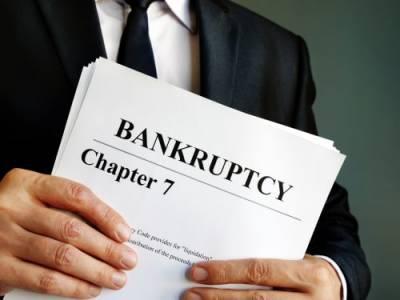 312-704-0771
312-704-0771
What Are a Creditor’s Rights in a Chapter 7 Bankruptcy?
 Creditors have multiple options for collecting debts that are owed. However, debt collection efforts may be affected by a debtor’s bankruptcy filing. In cases where a person files for Chapter 7 bankruptcy, certain types of debts may be discharged, preventing a creditor from collecting what is owed. Creditors will want to understand how different types of debts will be affected by a Chapter 7 bankruptcy and how they should proceed in these cases.
Creditors have multiple options for collecting debts that are owed. However, debt collection efforts may be affected by a debtor’s bankruptcy filing. In cases where a person files for Chapter 7 bankruptcy, certain types of debts may be discharged, preventing a creditor from collecting what is owed. Creditors will want to understand how different types of debts will be affected by a Chapter 7 bankruptcy and how they should proceed in these cases.
Creditors’ Rights Regarding Secured and Unsecured Debts
During a Chapter 7 bankruptcy, a debtor’s non-exempt assets will be seized, and these assets will be liquidated. The proceeds received from the sale of assets will be used to repay some or all of what is owed to creditors. However, payments are made in order of priority, and a creditor’s ability to recover what is owed may depend on whether a debt is secured or unsecured.
Secured creditors are given a higher priority, and they are entitled to receive either the value of the debt that is owed or the collateral used to secure the debt, whichever is less. If assets are seized and liquidated, secured creditors may receive the full amount of what is owed, or they may repossess the collateral. Debtors also have the option to redeem secured debts by paying a lump sum to the creditor for the value of the collateral.
Unsecured creditors have the lowest priority in a Chapter 7 case. Depending on whether a debtor has any assets that may be seized and liquidated and the amount that is left over after payments are made toward higher-priority debts, unsecured creditors may or may not be able to recover some of what is owed. During the bankruptcy process, unsecured creditors can file a proof of claim to ensure that they will be able to receive distributions when possible. In some cases, creditors may also be able to object to a discharge, such as when a creditor believes that a debtor has committed fraud or is abusing the bankruptcy process. Creditors should also be aware that they cannot receive preferential treatment from debtors. If a debtor made payments toward a debt within 90 days before filing for bankruptcy, the trustee may seek to recover these payments and ensure that payments are made to creditors according to the proper order of priority.
Contact Our Chicago Creditors’ Rights in Bankruptcy Attorneys
At Dimand Walinski Law Offices, P.C., we provide representation for creditors who are seeking to collect debts or respond to bankruptcy filings by debtors. We can help creditors determine their best options for recovering money that is owed and minimizing their financial losses in bankruptcy cases. Contact our Chicago debt collection lawyers at 312-704-0771 to learn more about our legal services.
Sources:
https://www.uscourts.gov/services-forms/bankruptcy/bankruptcy-basics/chapter-7-bankruptcy-basics
https://www.law.cornell.edu/uscode/text/11/727






